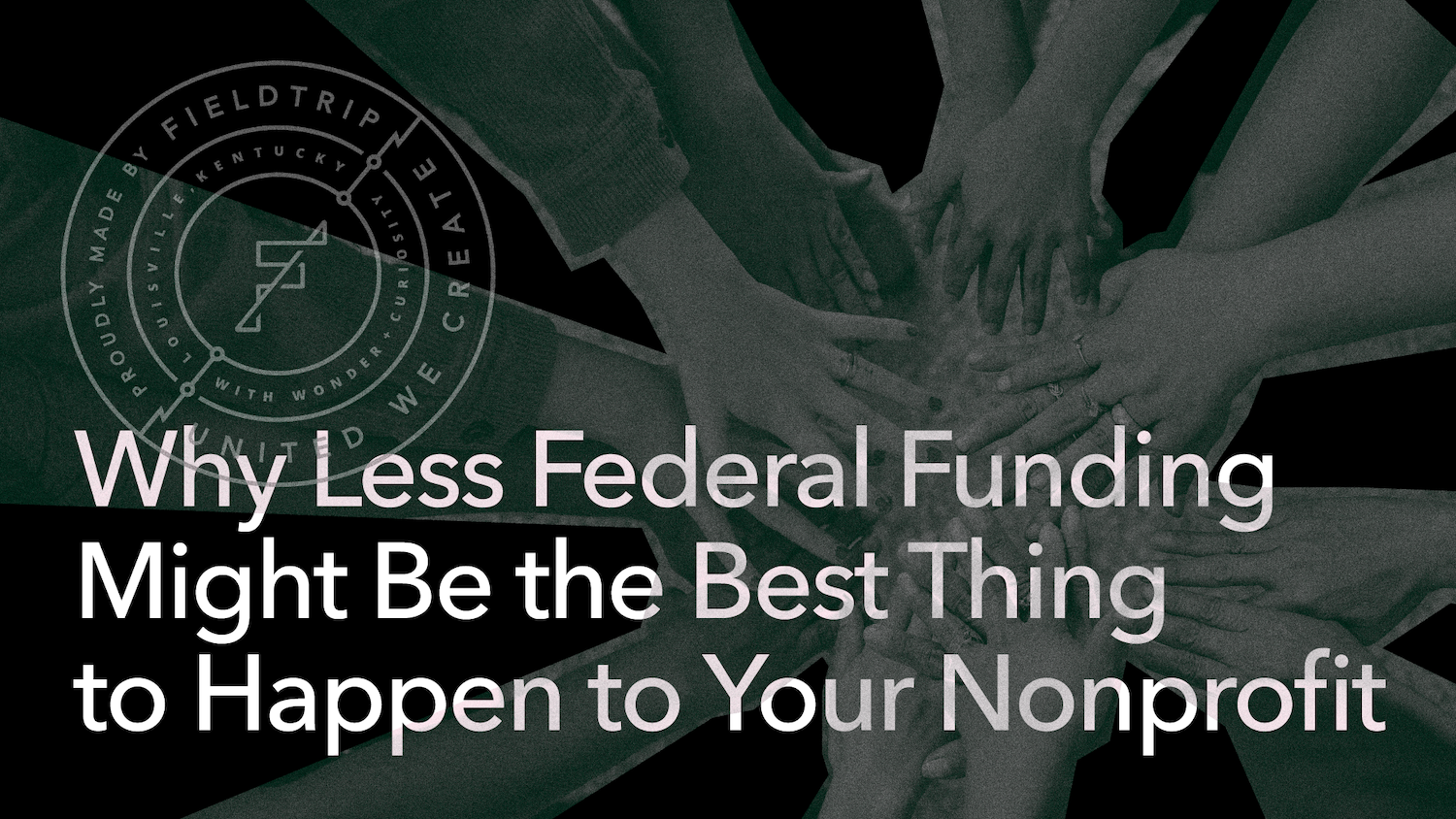Welcome to this week’s edition of the Mission Multiplier. I’m Jane Pfeiffer founder and president of Fieldtrip. Fieldtrip is an agency that specializes in working with nonprofit and purpose-driven organizations, helping them eliminate their biggest expense. And that expense is the cost of lost opportunities. So today we’re talking about getting lost. It’s a sensation that most of us as adults try to avoid. We seek certainty and safe spaces. Well, I’m returning from an entire week spent in Portland, Oregon with a new client kicking off a big project in terms of branding and website. But, you know, those are the deliverables. What we’re really trying to solve for is the cost of lost opportunities that’s created by limited awareness and alignment to their mission. They’re facing some really big challenges. Portland, you know, booming city. And then the pandemic, racial unrest, protests. Things happened. And I’m not going to go into all that detail, but at a high level, some of the things that they are addressing is, first and foremost, you know, how to bring a city together, create some unity around some really common causes when it’s a diverse community, which is a strength, but also sometimes a divided community, which is obviously a weakness. They also have to address some significant social needs, specifically the lack of affordable housing and how that creates homelessness and the social services around those individuals and families and build a city that’s recovering from economic wounds. The name of their organization is one that gets lost. There’s several organizations that have similar missions and purposes. And, you know, if you’re explaining, you’re losing and so they’re they’re getting lost in all the attention.
By being there for an extended time and being on site, what we were able to do is really get lost. And I would highly recommend that even if it’s in your own city, we set a starting point and an end point roughly sometimes and then, you know, we took just walks, explored, went into businesses and you know, that’s great and that’s fun. But what we did most importantly was just talk to everyone. It could just be a question, maybe a couple questions. Some of them bloomed into, you know, sitting down and getting a drink and then half an hour discussion others became a lunch appointment, but most of them were just simple questions. So asking, you know, what brought them to Portland or what did they love about Portland? What did they wish was different? Have they heard of the organization’s name? And if yes, tell me what they do. You know, it was easy as a tourist using, you know, Uber and Lyft or a waitress. People automatically ask us, oh, what brings you or are you from here? What brings you in? And we could say, “Oh, we’re working with X, Y, Z.” Have you heard of them? So we tried to ask that of everyone. And, you know, people thought that, yeah, the name sounded familiar but very few could actually explain what it was or put them in the right sector. So, we validated the problem and now we’ll get to work solving it because we brought those perspectives back. So often we sit at a table of very dedicated volunteers, staff, board members, the people who know us the best, and try to make decisions about how to influence others and what we forget is the people that we need to influence aren’t in that room. They’re not at the table. We don’t know them. We’re making some big assumptions. So I encourage you, whether it’s 10 minutes a day, an hour to go, get lost, go somewhere different, and pretend you’re a tourist and just ask a lot of questions and see where that conversation takes you. Thanks for watching and visit wearefieldtrip.com/nonprofits to subscribe to our weekly videos. I’ll see you next week.

